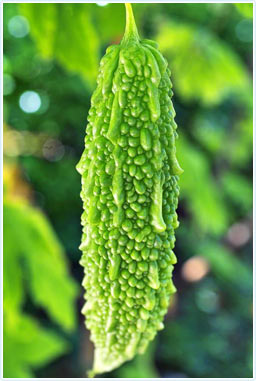3 new breeds of crossbreds - more options for farmers
F1 crossbred planting has become the norm for farmers in intensive vegetable areas. Many households have flocked to millionaires through growing misery.
Recently, a new name in Vietnam seedling village appeared, that is, Cao Cao Sao Seeds brand. Grasping tastes of consumers and producers, this company simultaneously launched 3 F1 crossbred varieties with basic characteristics such as early harvest; wrong fruit, long fruit collecting time; beautiful colors, shapes; Left hard is suitable for long distance transport and storage. These hybrids have wide adaptability, suitable for many regions in both North, Central and South.
In comparison with imported cross-bred varieties or varieties of foreign origin, F1 cross-bred varieties of Sao Cao Nguyen have many outstanding properties in terms of early calculation, productivity, quality and time of harvest. The special thing is that because it is completely researched and produced in the country, the seed price is suitable for farmers' pocket.
Breed characteristics:
Suffering through F1 SAO NO.1: Strong growth, good disease resistance, wide adaptability, easy to fruit, grow year round. Fruit left 37 - 38 days after sowing. Collection time lasts 1-2 months. The fruit is 17 - 18 cm long. Large spines, shiny skin, smooth thorns, medium green, thick, hard, hardy, long-distance, and preserved. The average yield is 30-35 tons / ha.

Bitter melon
(Artwork: i.pbase.com)
Suffering through F1 SAO NO.2 : Strong growth, good disease resistance, wide adaptability, easy fruit set, horizontal branching, wrong, planted all year round. Fruit left 37 - 38 days after sowing. Harvesting time lasts 1-2 months. The fruit is 20 - 22 cm long. Spiny blooms, medium green, thick, hard flesh, long-distance transport and long-term storage. The average yield is 30-35 tons / ha.
Suffering through F1 SAO NO.3 : Strong growth, good disease resistance, wide adaptability, easy fruit setting, horizontal branching, wrong, planted all year round. Early fruit collection, 35 - 36 days after sowing. Harvesting time lasts 1-2 months. The fruit is 20 - 22 cm long. Blooming spines, shiny skin, smooth thorns, medium green, thick, hard, hardy, long-distance and preserved. The average yield is 30-35 tons / ha. In particular, due to small intestine, the ratio of edible fruit flesh is very high: 11.6% intestine, 88.4% fruit flesh compared to normal imported exotic fruit, the corresponding rate is 14.6%: 85.4 %
Main technical requirements:
- Quantity of seeds: One ha requires 4 kg of seeds.
- Prepare soil and cultivate: Suffering is easy to choose the soil, but suitable for fertile soil. High beds 20-25 cm, 1 m wide beds, 0.4 m wide. Cover and perforate 0.4 - 0.5 m, sow 1 seed / hole. Soak seeds with warm water for 5 - 6 hours and incubate seeds in a wet towel, after 2 days of seeds sprouting before sowing. After sowing, spray ants, crickets and root rot.
- Fertilizing: Applying 1,000 kg of lime; 15-20 m 3 of manure; 400 - 500 kg super phosphate / ha. Top dressing is made of urea, NPK 16-16-8 or 20-20-15 every 15 days between sowing. The amount of chemical fertilizer depends on the growth status of the plant.
- Irrigation: Apply enough moisture by rinsing or irrigation. Ensure good drainage when heavy rain.
- Care: Plug rub, affordable mesh for suffering through climbing truss. Remove the left and right ends of the stem, taking the following fruits because the left now has a standard shape. There is no need to press tops, pruning branches for early fruit varieties and long harvests. Note that preventing pests and powdery mildew are common pests of bitter melon to keep plants strong and increase productivity.
Note: Do not take commercial seeds of cross-bred variety SAO NO.2,3.
- 5 most rare breeds in the world
- 7 rare but obscure dog breeds
- Breed two new rabbit breeds
- The face of scientist: The female doctor 'dolphin'
- TCP and IP options
- Rare breeds are both strange and strange
- Phu Tho produces chicken breeds by artificial insemination
- Patents by farmers
- 3 options to cope with climate change
- Western farmers caught yellow eels
- The world's rarest horse breeds
- 5 gentle dog breeds suitable for farming, walking without muzzle
 'Barefoot engineer' invents a pipeless pump
'Barefoot engineer' invents a pipeless pump Process of handling dead pigs due to disease
Process of handling dead pigs due to disease Radiometer
Radiometer Warp Engine: Technology brings us closer to the speed of light
Warp Engine: Technology brings us closer to the speed of light